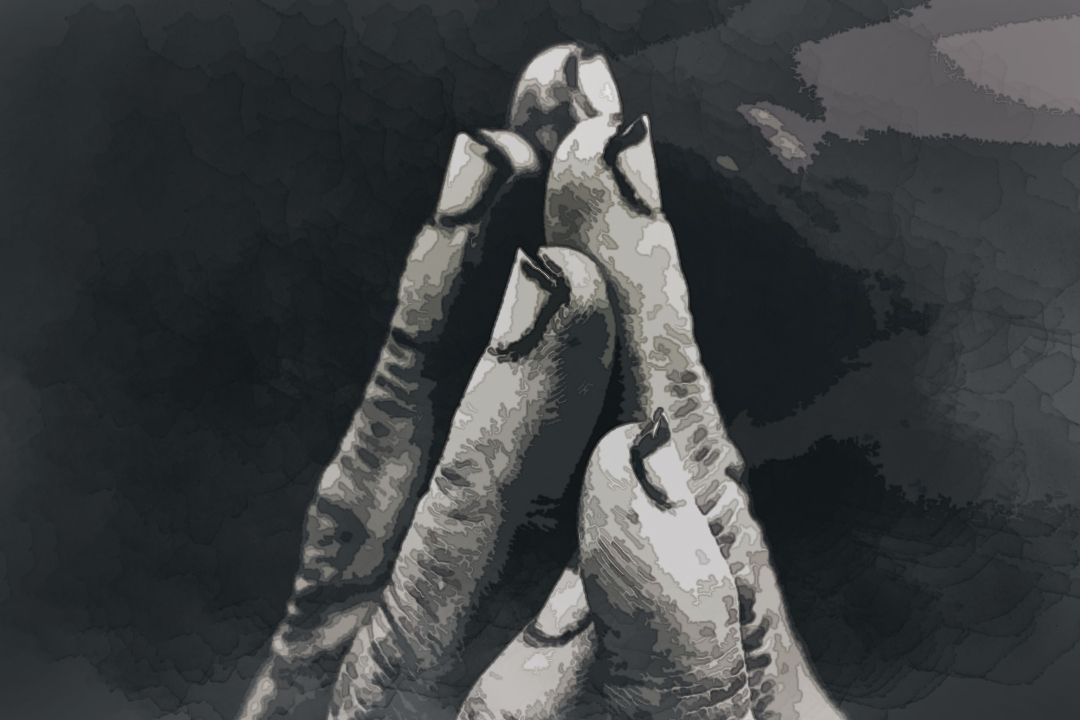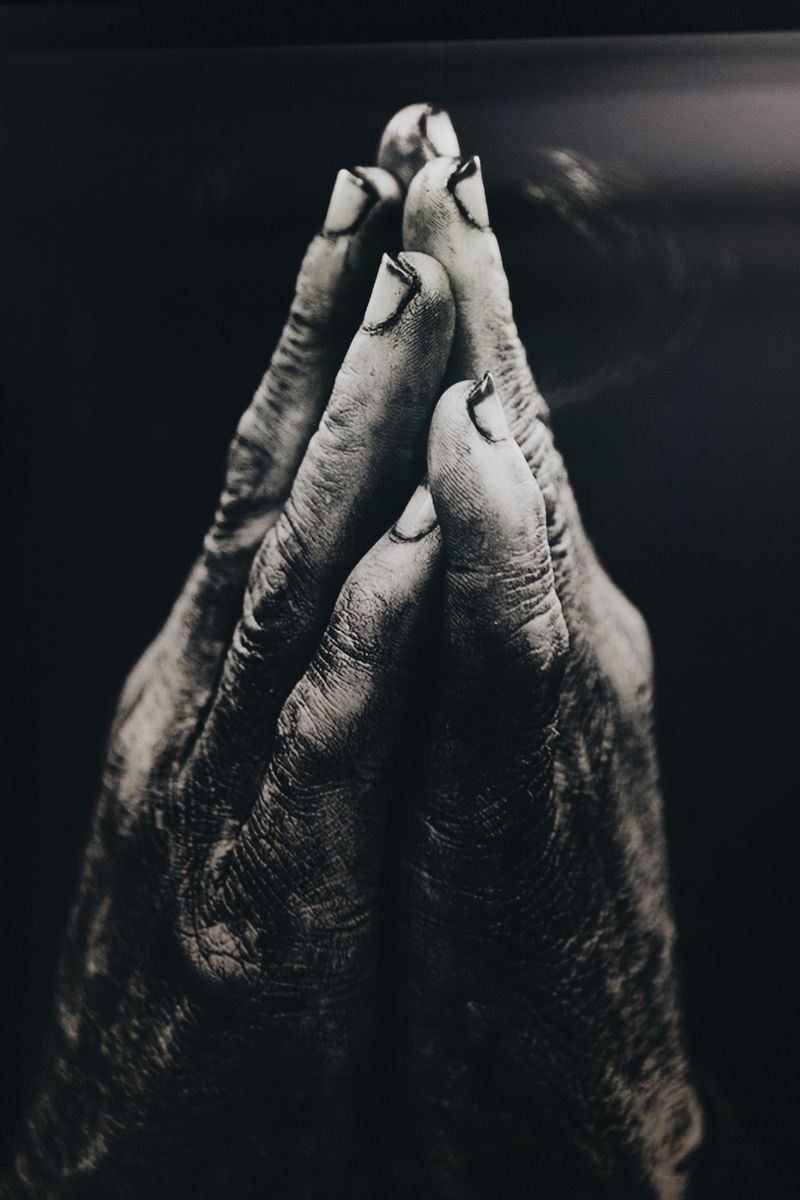The Etymology of Silence Changes over Time
Silence is better than unmeaning words.
— Pythagoras (570-495 BC)

Prayers Bring Nothing But Silence - Another Möbius by planksip
The Etymology of Silence Changes over Time
Silence is better than unmeaning words.
— Pythagoras (570-495 BC)
The titled responsion sounds more like an echo, a reflected self-annunciation.
If our origin stories of silent psychology and Etymology are one and the same how do they change over time? What comes to mind when you sit in silence? What do you contemplate in the shower when you aren't singing? All the better for those who can multitask to Wake Me up Before You Go-Go.
If this isn't played at my funeral I'm not gonna Go-Go!
According to the Google Oracle, this hit from the '80s s the number one most popular song to sing in the shower. Now that's Faith, George Michael style!
Silence Interrupted
Absolute silence leads to sadness. It is the image of death.
— Jean-Jacques Rousseau (1712-1778)
The titled responsion is interrupting the silence.
There are two main concepts that I am playing with here. The titled responsion interrupts silent contemplation at midnight, tic-toc, can you hear the cadence of time? Coupled with the claim that prayer yields nothing but silence, this pathway is deafening. Expand on the emptiness that prayer delivers and the similarities between absolute sadness.
Supreme quiet prompts pity. For reasons unknown, it's the picture of death. The main distinction is, that it's not demise.
Quietness and bitterness are associated. At the point when we are in a condition of supreme quiet, we will in general turn out to be more reflective and insightful about our lives. This is the reason you frequently observe individuals with pity and despair in their appearances. Yet, when they are encircled by sounds, they will in general turn out to be more playful and euphoric.
In any case, total quietness isn't generally what prompts pity. On the off chance that we are talking in a room brimming with individuals, there will consistently be a type of prattle going on. This offers everybody a chance to share their emotions or responses to something. Without these commotions, individuals are as yet ready to communicate and in this manner express what is on their minds. Yet, when there is only one individual, the various emotions are lost peacefully.
Some of the time, you can feel miserable inclination alone without interruptions. In any case, when you need to share your sentiments, you find that it's difficult to do as such. So you may end up being miserable.
A few people say that when we become pitiful, we should be reminded that it's a tragic inclination. The thought is that we ought to be caused to feel pity and satisfy ourselves once more. It doesn't work that way.
Quietness doesn't mean we need to feel pitiful. It's essentially a method for us to satisfy ourselves once more. To be more idealistic and energetic is the thing that satisfies us. By fulfilling ourselves, we're relinquishing the misery and despair that encompasses us.
Calm time is certifiably not an awful thing. It's an opportunity for us to consider what is imperative to us. It's an opportunity to peruse a book or even contemplate. The more we read, the more we'll think unmistakably and see the master plan.
We should recall that misery isn't the apocalypse. It is just methods we have to change so our point of view will be glad and cheerful.
The initial step is to understand the pity and its motivation. When we perceive what causes the trouble, we can begin to change the things that lead us to this pity. Along these lines, we can make ourselves cheerful and we can fend the trouble off.
We as a whole have a propensity for needing to be distant from everyone else. That is the reason we can get dismal in some cases when there is nobody around. At the point when we're forlorn, we may be enticed to feel discouraged.
Making some peaceful memories can assist us with beating this unfortunate propensity. At the point when we enjoy a reprieve, we can zero in on something we love or we can zero in on ourselves. furthermore, things we can begin appreciating each other's conversation.
Disposing of trouble is simple when we can set ourselves feeling better. In the event that we need to get cheerful and inspired, we can begin by speculating positive things. For example, you can say "I feel happy when I'm with my friends and family".
We can start to consider more joyful musings and positive things as opposed to the negative considerations that we frequently have when we are pitiful. We can figure out how to relinquish the unfortunate propensity.
Having total quiet isn't what prompts trouble. By setting ourselves feeling better, we can be glad and we can quit feeling tragic.
There are various methods of doing this. A few people attempt to eat well nourishments to have the option to zero in on the beneficial things throughout their life. Others may learn yoga or contemplation. We as a whole have our very own methods of making ourselves cheerful and we can utilize them to be upbeat.
Joy will come when we let go of the negative behavior pattern that brings us misery. We can change our musings and our practices to be more joyful.
Supreme quietness is a characteristic blessing. We can make it an aspect of our life. we can cause it something we to do so as to be glad. We can be upbeat.
Thank God for That!
Prayer does not change God, but it changes him who prays.
— Søren Kierkegaard (1813-1855)
The titled responsion is...
Getting hammered with heuristics is the rule of thumb game we all play, religions of the world use prayer to modify the functionality of the conceiver. In the end, all there is silence.
Imploring doesn't change God, it transforms Him who asks.
Supplication doesn't change God, however just He who asks. At the point when somebody goes to God, He is tuning in. Asking is a demonstration of accommodation to his maker. The words are what God uses to depict us.
At the point when somebody asks, he is approaching his maker for a supernatural occurrence. It is extremely unlikely to foresee whether God will give a wonder. A petition is a demonstration of trust. At the point when we accept that we can and will get a supernatural occurrence, we are following up on our confidence. Imploring God doesn't change God, it transforms us.
All will be in your musings consistently all will be all the rage and in your spirit.
Our maker deals with our sake. It requires some investment, exertion, and love. In the event that we genuinely need a supernatural occurrence, we have to petition God for it. On the off chance that God needs a supernatural occurrence, at that point we should request one. What's more, a petition is an initial step to accepting one.
Understand that when we ask, we are not evolving God. Yet, when we get what we appeal to God for, that is evolving Him. that is a definitive reason for the petition.
God is in everything you do."
At the point when we petition God for things that we need, we are working through our God. by permitting Him to work through us for the things that we need.
The facts demonstrate that petition doesn't change God. The facts confirm that petition works. Supplication is our definitive association with Him. At the point when we implore, we are giving up on His maker. By doing this we are permitting Him to work through us.
The supplication we state each day is one of his manifestations, regardless of whether it isn't from an agreeable petition.
At the point when we don't do anything else, however, supplicate, we are respecting God. The best approach to respect our maker is to be straightforward with him. On the off chance that you genuinely need something, let him know. You should trust in God and accept that he can work through us.

What do Søren Kierkegaard and Heraclitus have in common? Find out on planksip.
As we implore, we will turn out to be more legitimate and open to Him. The more we make them work through us, the more we have His trust in us.
At the point when we truly need something, we are confiding in God. at the point when we ask, we are giving up on Him and accepting that we will get it from Him.
I have consistently said that petition isn't only a declaration of sentiments, however more along these lines, it is to associate with Him.
Supplication is a demonstration of accommodation to God. At the point when we submit to God, we let him manage our activities and choices. At the point when we are unassuming, we are more open to His arrangement.
By confiding in God, we are more open to his insight. At the point when we trust in God, we will be guided and driven.
When we ask, we are giving him that we are deserving of something better. The more we submit to him, the more we will get from him. The more we will gain from him. The more he will give us what he wants for us.
Supplication is a relationship. At the point when we give our heart to God, we will get His favors. We will get plenitude in bounty.
Asking is tied in with going after him and going after God.
At the point when we give up on God, we become more open to His thoughts. We would then be able to approach Him for our wants. We can likewise appeal to God for other people and the things they need for themselves. as, well.
Hence, when we give our heart to God, we will get His favor for it. furthermore, become more open to his thoughts, with the goal that we can share them.
Dazed and Confucius
Much unhappiness has come into the world because of bewilderment and things left unsaid.
— Fyodor Dostoevsky (1821-1881)
The titled responsion is "Dazed and Confucius". What follows is subject to revision, do you have any suggestions?

What do Fyodor Dostoyevsky and Cicero have in common? Find out on planksip.

The planksip writers' cooperative is sponsoring a re-writing of this article (2,000 words) with $2,000 CAD in prize money for the best article as voted by your peers in the planksip writers' cooperative. Judged by your peers, your chance to join a community of creative thinkers and win over $750,000 CAD in prize money is your entry point into becoming a planksip journalist.
We want to change the way people engage. The planksip organic platform is dedicated to supporting your voice as a writer and a thought leader. Join today, membership matters!



